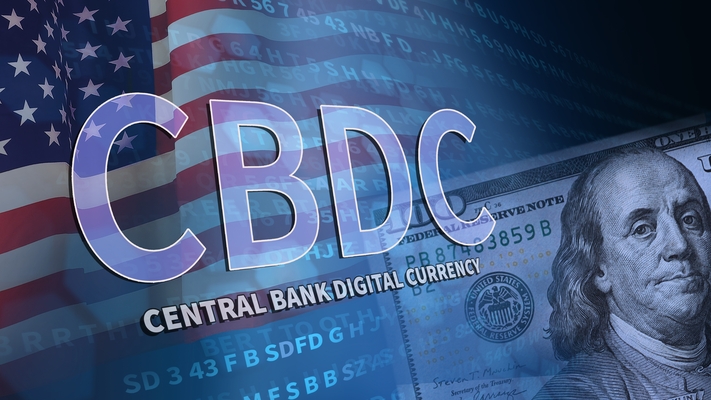The House Financial Services Committee passed the CBDC Anti-Surveillance State Act on Wednesday, taking a step forward in prohibiting unelected bureaucrats from acquiring financial control over all Americans.
Introduced by U.S. Rep. Tom Emmer (R-MN), the bill prohibits the Federal Reserve from issuing a central bank digital currency (CBDC) and has gained support from 60 members of Congress.
Currently, cash is the only central bank money that is available to the general public. It's untrackable, or in other words, free from government oversight. The Federal Reserve is conducting ongoing research around the implementation of a central bank digital currency, and claims it could "fundamentally change the structure of the U.S. financial system, altering the roles and responsibilities of the private sector and the central bank."
During the hearing, concerns were shared over the potential privacy invasions and surveillance possibilities associated with an online, government-accessible payment system. Chairman Patrick McHenry (R-NC) said the Committee has examined the implications for years under both Democrat and Republican leadership. The committee holds bipartisan agreement that Congress must explicitly authorize a CBDC, not any agency.
"Physical cash provides a level of privacy and freedom that is unmatched by digital transactions. It allows Americas to engage in voluntary exchange without the oversight or potential interference of third parties," said Rep. Daniel Mueser (R-PA) in support of the Act. "With a digital currency, every transaction, in theory, is traced, monitored, and logged creating an unprecedented surveillance opportunity that could be misused."
SEE ALSO: Cash is king in countering the central bank digital currency agenda
On the other side of the aisle, Rep. Maxine Waters (D-CA) criticized a complete ban on a CBDC. With evolving technology and new systems, Waters said the legislation should really be called the "CBDC Anti-Innovation Act." Her remarks echo the Federal Reserve's sales pitch, in which it consistently claims that "the introduction of a CBDC would represent a highly significant innovation in American money."
"Depending on their design, we know CBDCs may serve as a promising public option for payment services, improve efficiency and speed and cost," she said. "These key opportunities will never be understood or realized through Republicans sweeping prohibition on a potential CBDC."
The bill passed out of the Committee and was reported favorably to the House floor during the markup session, an important step toward passing the legislation through Congress.
The Administrative State continues to breach the personal privacy of Americans, and this forthcoming tool could be used to surveil citizens to a whole new level if implemented. Humans aren't angels, which is why our system has checks and balances – to stop any one department from accumulating too much unnecessary power. There is frightening potential in a CBDC, and it's up to the people to make their voices heard.
You can take action with Convention of States, a grassroots effort to call an Article V convention to place power restrictions on the entire federal government. Simply sign the petition below to show your support and see how you can get involved here.


